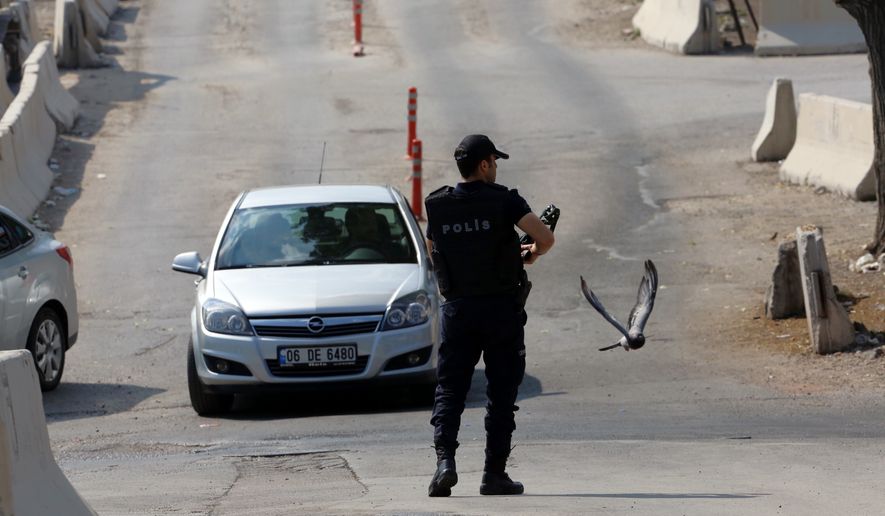Amid widespread reports of an Islamic State-free zone being created on the border between Turkey and Syria, the Pentagon said Monday that the administration is nowhere near a final deal and that the U.S. is committed to making the entire world a safe zone from terrorists.
Talks are continuing today between the U.S. and Turkish militaries, but any final deal on the creation of a safe zone along the border to stem the flow of foreign fighters in Syria and provide a place for Syrian refugees is likely “weeks” away, said Capt. Jeff Davis, a Pentagon spokesman.
“The notion that there’s a specific zone, I would say that we will hopefully see many such places where you have ISIL has been driven out and people can return and live their lives,” he said, using an acronym for the Islamic State. “That won’t be one specific zone, it’ll be many places. There already are places where we’ve driven ISIL out.”
Capt. Davis emphasized that the creation of a no-fly zone, which has been a priority for Turkey, is not part of current negotiations.
Several media outlets reported that the U.S. and Turkey will cooperate to enforce a 60-mile-long safe zone along the border with Syria. The establishment of an Islamic State-free zone would close one of the last remaining border crossings used by the terrorists to transport foreign fighters, protect Turks along the border in Turkey and provide a place for thousands of Syrian refugees who have fled to Turkey to live without violence.
Capt. Davis said “active conversations” are still going on Monday at every level and that it’s “premature to say it’s a final done deal.”
He said some of the conversations include tactical level planning, like logistics, berthing and force protection strategies, but declined to confirm that the number of U.S. troops in the area would increase, saying that it was “possible.”
One of the largest issues is that Turkish officials see taking down Syrian President Bashar Assad as the top priority, while the U.S. has declined to cooperate with or fight against the brutal leader, instead choosing to focus on the defeat of the Islamic State.
It is unclear how increased cooperation with the Turkish and U.S. militaries will effect U.S. support of various groups on the ground. The U.S. has said, for example, that the Kurds are the most capable fighting force against the Islamic State in the region and provided weapons to them through the central Iraqi government, but Kurdish forces said the Turkish military has repeatedly attacked their units in Syria, BBC News reported.
Officials announced last week that Turkey would allow U.S. manned and unmanned aircraft to fly bombing sorties from its bases, shortening the distance and time required to get to Islamic State targets in Syria. Details of that agreement to use bases, however, are also still in flux, with no specific information on which bases will be used or if special operations ground troops could also use the bases.
• Jacqueline Klimas can be reached at jklimas@washingtontimes.com.




Please read our comment policy before commenting.